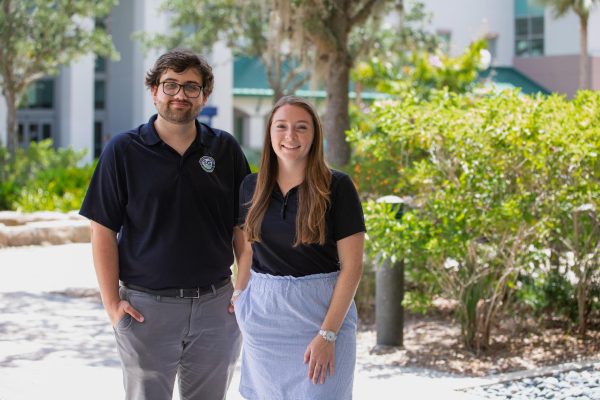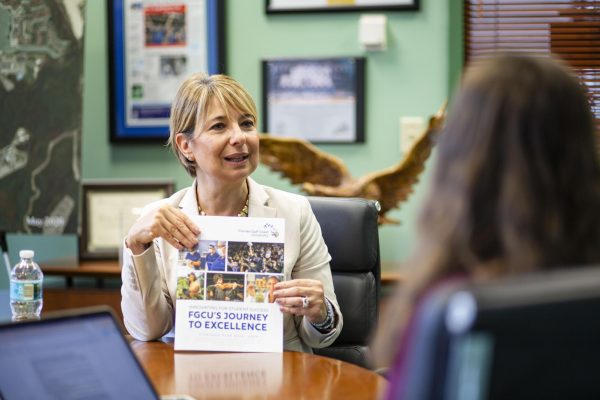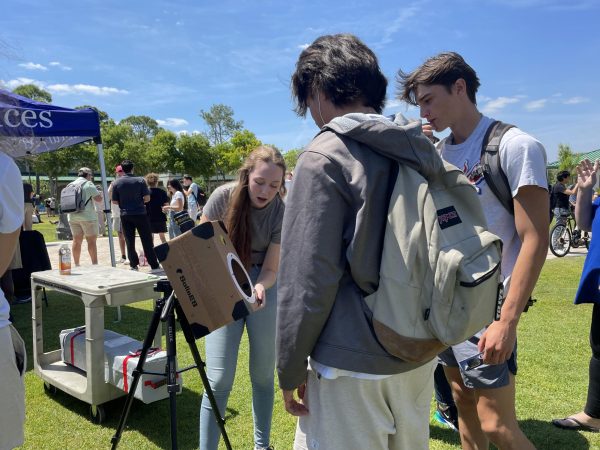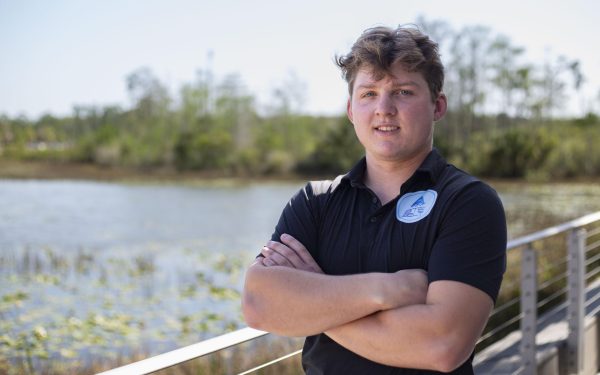SG Urges Student Involvement as Elections Near
February 20, 2023
This article reflects information gathered by Saturday, Feb. 18, 2023.
FGCU Student Government (SG) has recently seen a decline in student involvement and participation. All three branches of government currently have open seats available.
The judicial branch consists of four associate justices and one chief justice. During the spring semester around election season, they include a supervisor of elections starting in Jan. and until elections are over.
Justices hold “lifetime terms” meaning once they are appointed into office, they will hold that position until they graduate or resign. They do not need to run again for election. Chief Justice Julianna Manes says this makes it harder to find people willing to run for a position in her branch.
“Things we have to take into consideration include, ‘Do we want to appoint someone who is going to graduate next semester and then go through this process again?’ It is a long process, it does take a few weeks to get them interviewed and appointed,” Manes said. “Do we really want to take longer appointing them than they’ll be working?”
Students wishing to get elected into the judicial branch have to first go through a round of interviews with members of the judicial and executive branch, and ultimately get appointed through the senate.
At the beginning of this semester the judicial branch consisted of only Chief Justice Manes. They now have two associate justices and a supervisor of elections. Manes said they are working toward having a full judicial branch for the elections by putting a new associate justice up for appointment at each senate meeting until then.
The executive branch currently has two open seats out of ten total. This means the executive branch is at four-fifths capacity. The positions of director of student opportunity and director of governmental relations are vacant. This will change once the new president, vice president and treasurer are elected. All other positions in the executive branch must be appointed through the senate.
“The Executive Branch has found itself in a position where getting individuals onboarded into director roles are a lot more tasking to accomplish, especially when we are put in a position to onboard individuals halfway through our term,” Student Body Vice President Tyler Varnadore said.
Students within the executive branch not only need to go through the interviewing and appointing processes to join the branch, but it then takes time for them to learn the roles of their new job.
“We also have had situations where we had no candidates apply for certain vacancies. As a result, we wear multiple hats in this organization to ensure we are still satisfying our mission to serve the student body,” Varnadore said.
The legislative branch has seen a recent high turnover rate of senators in office. Only 22 of 41 available senate seats are currently filled.
Senate Pro Tempore Dominic Villarino said, “We are definitely facing a problem here.”
Many students on campus, including those in SG, are still feeling the ramifications from Hurricane Ian. Many senators also graduated at the end of last semester, which left the senate in need of new involvement.
Villarino was appointed last semester and didn’t get access to his SG email until early Feb. This has affected his abilities to assist students wishing to get involved in SG.
“We also haven’t been able to advertise as much this semester. The semester is still young, I just got into the Pro Tempore email,” he said. “Right now, in the works, we have a lot of senators we are trying to get into [empty seats].”
The first thing he said he did after getting into the pro tempore email was check the list of emails from prospective senators.
However, the task of expanding involvement in SG does not completely fall under his role. It takes time for student inquiries to reach the appointment process.
Sen. Hannah Mathis applied for a position in the senate last Sept. and was appointed in late Nov. As a freshman in the College of Engineering, she was excited to get a chance to speak up for her peers.
“The College of Engineering hasn’t had a Senator for a very long time, so I think it is a very good thing that I took this position since it was vacant for so long,” she said.
The current openings in SG are subject to change after the upcoming elections. Each senator must make the choice to run again or not, no matter how recently they were appointed, and new senators will be welcomed to run. The same goes for appointed positions in the executive branch.
The current members of the judicial branch will remain the same as they do not have to run for elections, but are appointed for “lifetime terms.”












































